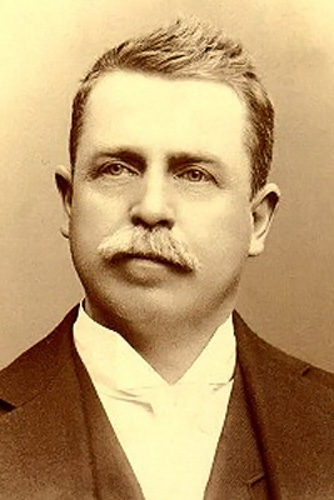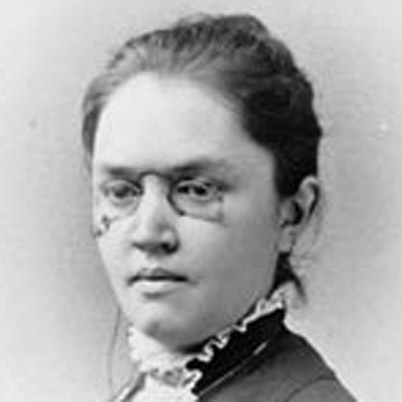So this morning I get an email from somebody I don’t know (his…or possibly her…email address was a model of anonymity — a seemingly random jumble of letters and numerals brilliantly designed to be completely forgettable, and maybe intended to put you directly to sleep) asking me this question:
Can you believe the wingers were so mad over that commercial?
I’d only started my first cup of coffee, so it took me a couple of seconds to decipher that. Wingers, I knew, referred to conservatives (nobody calls left-wing folks ‘wingers,’ though I’ve no idea why that is; left-wing folks are called ‘liberals’ or ‘commie socialist pussies’). The commercial, I assumed, was probably a Super Bowl commercial. But which commercial?
Bob Dylan shilling for General Motors? Maybe. The puppy-Clydesdale beer commercial? Possibly — we’re talking mixed-species horse-puppy relationships, and no way was that puppy old enough to be legal. Laurence Fishburn singing Puccini? Probably not — I mean, that opera begins with an execution, and conservatives are usually pro-death penalty.
I decided to seek guidance from that wellspring of Conservative Thinking: FreeRepublic.com. And hey, bingo — found it. It was this commercial:
What’s offensive about a multi-national corporation that sells its product worldwide making a commercial in which folks from different cultures sing America the Beautiful in a variety of languages? Here you go:
I was genuinely offended by the multilingual “America the Beautiful” Coke commercial. I mean REALLY pissed off! Big vote for WORST commercial.
The muzzie part of that ad was even worse than the foreign languages. The Coca Cola suits need to get the message loud and clear that mooselimbs are the enemy and that diversity is perversity. Real Americans should boycott all of their products including the Minute Maid brand.
Sing the song in English – even (especially??) if their speech is accented heavily with their native language.
Just watched the Coke ad. Think I’ll drink Pepsi tomorrow.
[S]o many seem offended by the multi-language Coke commercial. Was this the same Coke comemrcial that showed the gay couple skating? I’d be infinitely more offended by that than what language they were speaking.
[The gay couple skating] was the worst part of a commercial that went out of its way to be offensive on many levels.
I was REALLY pissed off at it. I never drink soda, but that makes me want to start boycotting Coke.
I remember the “like to buy the world a coke” singing commercial. Everyone sang in english. Language unifies. This commercial divides.
And in a classic case of Conservative Martyr Whining, we have this:
Coke airs an offensive ad. Conservatives are the only ones smart enough to recognize the offense and the liberal blogosphere immediately demonstrate their own “tolerance” by calling conservatives intolerant, stupid, racist, bigots for taking offense.
It’s apparently offensive to sing a song praising the beauty of this nation in any language other than English, especially if it’s sung by people who aren’t white, may not be Christian, and possibly aren’t heterosexual. If the folks who were offended by the commercial knew the history of America the Beautiful they’d be even more outraged.
It all began in Scotland in the middle of the 17th century. A minister named David Dickson, who was in and out of trouble for ‘nonconformist’ Protestant thought, wrote a long poem called O Mother Dear, Jerusalem. Seriously long — thirty-one painful verses describing the city of Jerusalem. For example:
Thy houses are of ivory,
Thy windows crystal clear,
Thy streets are laid with beaten gold —
There angels do appear.
Thy walls are made of precious stone,
Thy bulwarks diamond square,
Thy gates are made of Orient pearl —
O God, if I were there.
Despite thirty more verses of that, the poem remained popular among über-devout Protestants for a couple hundred years. Which is how Samuel Augustus Ward comes into the story.
Ward owned a little music store in Newark, New Jersey, but he was better known as the organist for the Grace Episcopal Church. He also dabbled in musical composition. One summer day in 1882, as he was coming back from a day spent at Coney Island, a tune got stuck in his head. Ward borrowed a friend’s shirt cuffs (which, back in that era, were detachable) and scribbled down the notes to the tune. He called it Materna, and later realized the tune fit the words of Dickson’s appalling poem.
It was a lovely little tune. Almost nobody cared. Ward died in 1903, unaware his tune would become wildly popular a few years later — thanks to Miss Katharine Lee Bates.
Katharine Bates was born in Falmouth, Massachusetts in 1859, the daughter of a Congregational minister. She was a rather independent and unorthodox woman. She obtained a degree from Wellesley College, studied for a while at Oxford in England, and eventually became a teacher and a writer.
In the summer of 1893, while she was briefly teaching in Colorado, Bates and some of her fellow teachers decided to visit Pikes Peak.
We hired a prairie wagon. Near the top we had to leave the wagon and go the rest of the way on mules. I was very tired. But when I saw the view, I felt great joy. All the wonder of America seemed displayed there, with the sea-like expanse.
She wrote a poem describing that beauty. The poem garnered a great deal of attention when it was published two years later in 1895. In 1910, her poem (with a few minor changes) was coupled with Samuel Ward’s tune Materna, and became known as America the Beautiful.
Why would conservatives be outraged by the history of this song? Because Katharine Bates lived for a quarter of a century with her ‘friend’ Katharine Coman. We don’t know for certain whether theirs was a sexual relationship, but there’s no doubt about the love they felt for each other. At some point Bates was described by a colleague as being a “free-flying spinster,” somebody who existed on the “fringe on the garment of life.” Bates response: “I always thought the fringe had the best of it. I don’t think I mind not being woven in.”
I think I’d have liked Katharine Lee Bates. I know I like the version of her song in the Coca Cola commercial. It pleases me that lyrics celebrating America written by a lesbian are sung in English and Hindi and Tagalog and Arabic. It pleases me that we see men and women of different races and different ethnic backgrounds and different sexual preferences and different religions celebrating this nation. And yes, even though the message being sent is ‘Buy Coke,’ it pleases me that the message is delivered in a way that is inclusive.
It does show an America that’s beautiful. And it’s a shame that some people can only find hate in that message.



[applause]
LikeLike
the time has come for Freedom Cola.
all together now!
« ‘d like to teach the world to sing
In perfect harmony
I’d like to buy the world a Freedom Cola,
And keep it company
That’s the real thing. »
LikeLike
I thought it was a great commercial. People need to stop with the liberal/conservative b.s.! Neither make sense when they are so “side” proud. Maybe people need to realize that somewhere in the middle lays what some call humanity!
LikeLike
That’s just is, isn’t it. There shouldn’t be any political angle to that commercial. It’s a bunch of people singing a song that says America is beautiful. But sadly, some people seem to think that it’s somehow insulting if the ‘wrong’ people say the US is beautiful. And the fact is, it’s conservatives who are voicing that opinion — and then complaining when they’re called on it.
I truly miss the days when liberals and conservatives could disagree on policies but still agree that the other side was acting in what they believed was best for the nation.
LikeLike
Now next you will be telling the wingers the pledge of allegiance was written by a socialist……. Oh, it was.
LikeLike
To call Francis Bellamy a socialist is a bit of a simplification. Yes, he described himself as a Christian Socialist — and he was clearly in favor of workers’ rights — but he was also something of a racist, with some pretty ugly ideas about immigration.
LikeLike
Well that too……
LikeLike
Excellent. :)
LikeLike
Bravo, Greg, bravo.
LikeLike
Very very well said. God spread His grace o’er thee, indeed.
LikeLike
Thank you Greg. What a pleasure to read well written discussion without any vitriol.
LikeLike
Oh, I’m not above vitriol, I’m afraid. I even enjoy it now and then. But mostly I just want to try to understand why people think the way they do, and make connections between ideas whenever possible. With occasional vitriol, because sometimes the circumstances demand it.
LikeLike
How about “without inexplicable vitriol”?
LikeLike
Have you ever considered that some people cannot be satisfied until they make other people as miserable as they are? My Mother taught me that if you can’t say anything nice about someone, don’t say anything at all. Well, and especially in this modern civilized world, that little tidbit of knowledge and wisdom seems to have been forgotten. Only now they blame their rudeness on the First Amendment.
LikeLike
We should all listen to our mothers, to be sure. But I rather think we also need to know when to ignore their advice. I can agree with your mother when it comes to personal social interactions — but I disagree when it comes to public interactions.
I firmly support the right of bigots to voice their bigotry, even though I disagree with them. And I believe the First Amendment does protect their right to say hateful, stupid things (by which I mean things I find stupid and hateful). Happily, it also protects my right to call them stupid and hateful — so it works to everybody’s advantage.
LikeLike
I have to admit there is a certain satisfaction in telling some people off, but I prefer to do so in a manner which uses terminology I’m quite sure is beyond their level of comprehension.
LikeLike